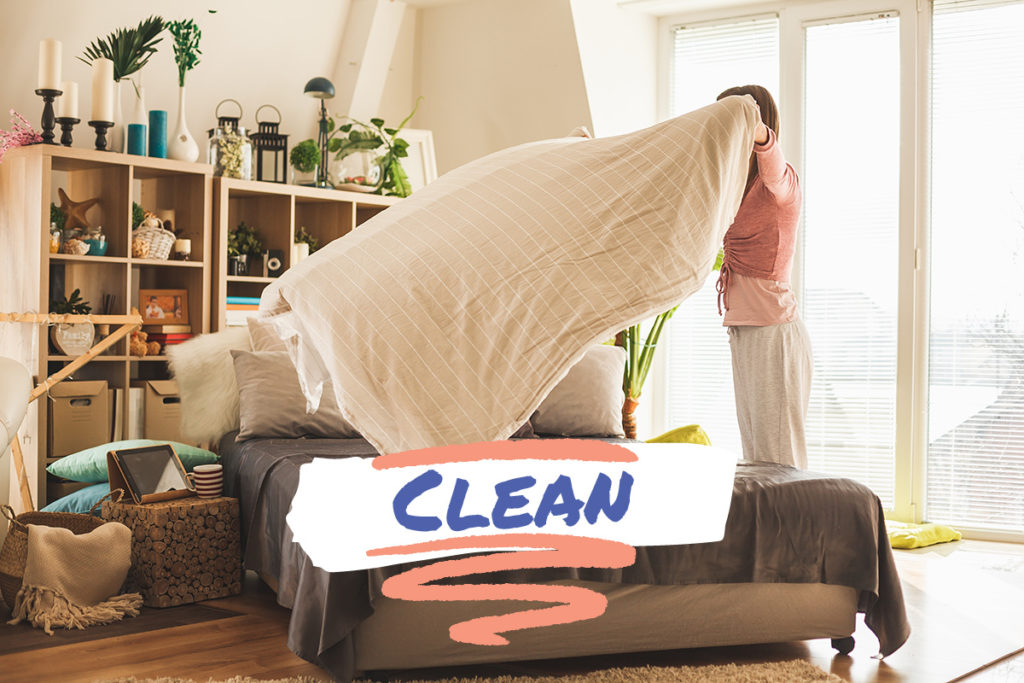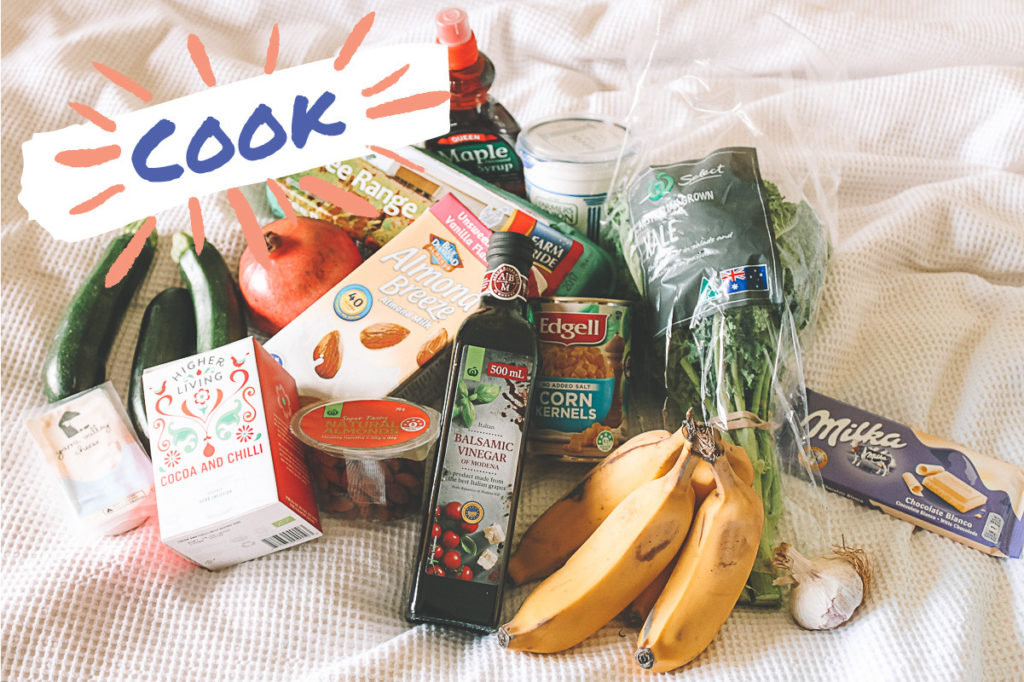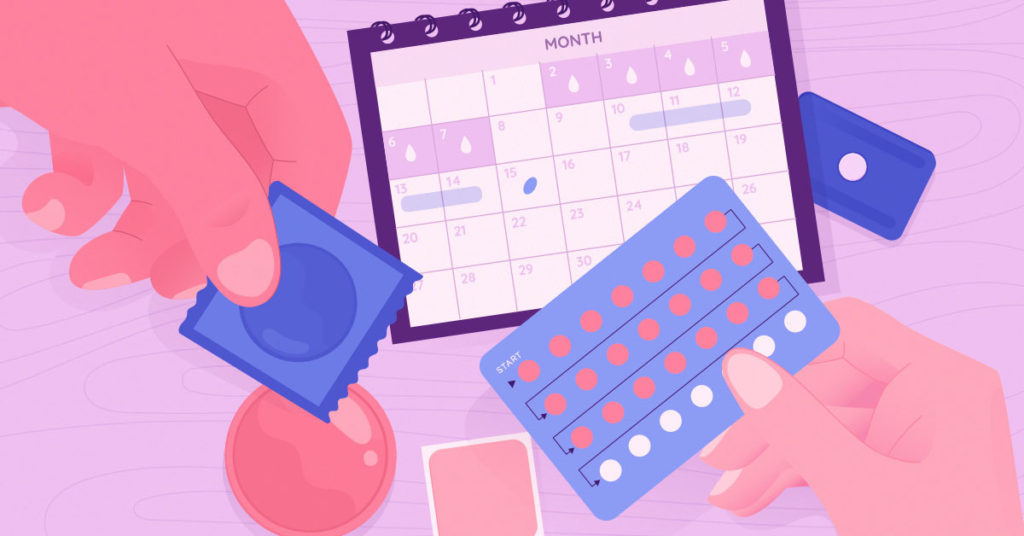Self-care is not just face masks and cups of tea!
After 18 months in and out of isolation, most people have adopted self-care tips to manage mental health and maintain healthier, happier lives. As important as self-care is, we know, as a student, you will be budget-conscious, so we’ve rounded up our best tips for free self-care.
Clean up
One of the easiest ways to clear your head and improve your mood is to clear your space. As a general rule, make your bed every morning to set the tone for a productive day. Be sure to clear any plates, mugs, or cups from your room as soon as you’re finished with them. Declutter and deep clean your bedroom at least once a week (including washing your sheets) and, if you’re living with housemates, set a weekly cleaning schedule for the rest of the house.
Get organised
As an international student living and studying overseas, you are likely both adventurous and driven. Take some time to think about and visualise what you’d like to achieve next. This could include travel, future study, a future career, new hobbies, more time with loved ones, or personal fitness goals. Then, create step-by-step to-do lists or a vision board to map out how you will achieve these goals. Having a plan will keep you motivated and engaged as you work your way towards completing these achievements.
Unlock your inner chef
Good nutrition is crucial for a healthy, happy body and mind and should therefore be considered important self-care! Cooking is a new skill for many international students and, with tight budgets, healthy meals are often replaced with takeaway or cheap, packaged alternatives. But this does not have to be the case! Dedicate a few nights a week to learning how to make a new, nourishing meal and see how your mind and body thank you. Here are some of our favourite websites and YouTube channels for recipes.
Social media cull
In 2021, we know that social media is a curated highlights reel rather than an honest representation of a person’s real life. That doesn’t mean that we are immune to comparing ourselves to what we see when we’re scrolling, thinking everyone is living more exciting, productive, romantic, or fulfilling lives. Make a promise to yourself to only follow pages and people whose content makes you happy, educates you, or entertains you. You will be surprised at how much less time you spend scrolling when you have completed this cull!
Get moving
Getting your blood pumping and endorphins flowing is one of the key pillars of self-care. The COVID-19 restrictions have seen most fitness trainers take their classes online, meaning you can work out at home and, often, for free! Rather than considering exercise as a chore, find something you enjoy. This could be setting an early alarm for a daily morning walk, subscribing to Yoga with Adriene, feeling the burn with at-home bodyweight workouts, or working on your cardio while dancing along to the latest hits.
Listen up
For you, self-care might include constantly learning new things. In today’s digital age, we’re lucky to have incredible resources at our fingertips. No matter the topic, there are bound to be podcasts or TED talks for you to listen to, expanding your knowledge and perspective at the same time. Listen while commuting, exercising, cleaning your room, or cooking for the ultimate self-care combination!
Nap
Adults need seven to nine hours of quality sleep per night. Busy modern lifestyles, the rise of personal electronics, and a variety of sleep conditions see a lot of people in sleep debt. This can all add up and negatively impact mood and performance throughout the day, which makes napping important! If you feel the need, lay down for a quick snooze to recharge your body and mind. Be careful not to nap too late in the day, though, as this will impact your sleep in the evening.
Reach out
Connection and a sense of belonging are important for all humans, especially international students living away from friends and family. However, many of us are experiencing fatigue after almost two years of intermittently studying, working, and socialising through screens. As an alternative, pick a loved one each day to send an out-of-the-blue message or voice note to. You could share a funny memory you have with them, something you admire about them, or something that reminded you of them recently. The unexpected communication will make their day and release the ‘happy hormone’, dopamine, in your brain as you recall a positive memory.
Dedicated fun
A key element of self-care is a healthy balance between activity and rest. As an international student, you are familiar with to-do lists, deadlines and responsibilities, so it may be difficult to allow yourself to truly rest without feeling lazy or unproductive. Flip this mindset by scheduling in some dedicated fun, where your only objective is to simply enjoy yourself. Think catching up on your favourite TV series, reading, gaming, meeting up with friends, drawing… the list goes on! Make a point to put your phone away and focus only on the one thing you’ve decided to do.








